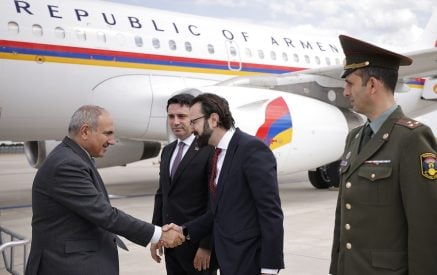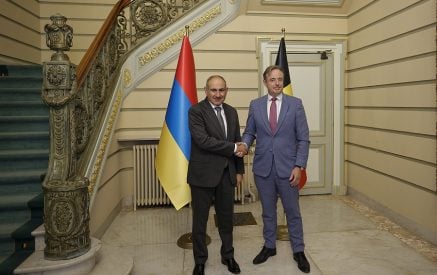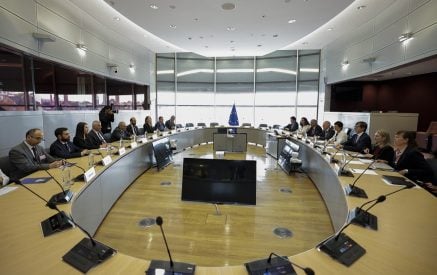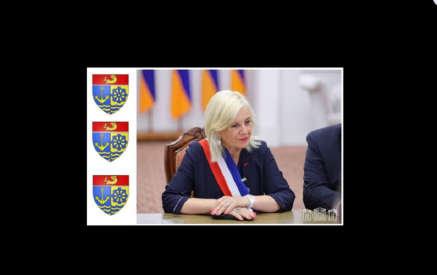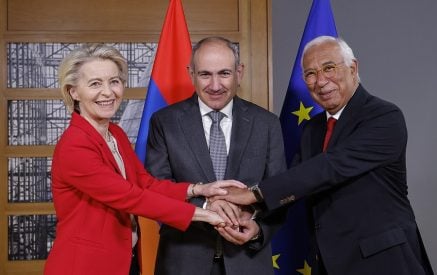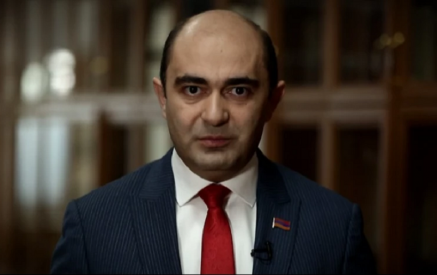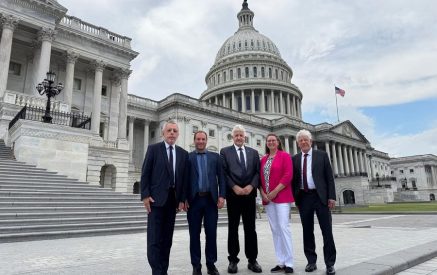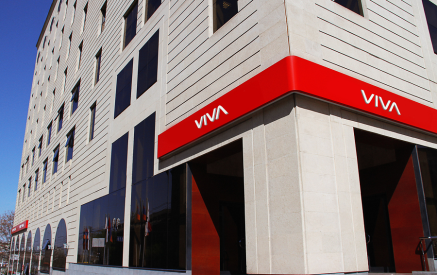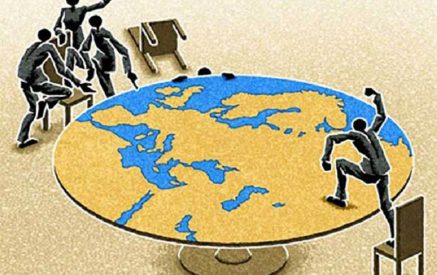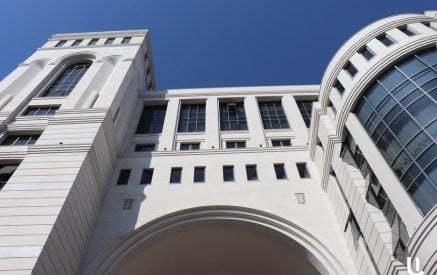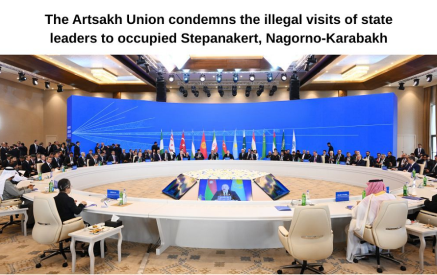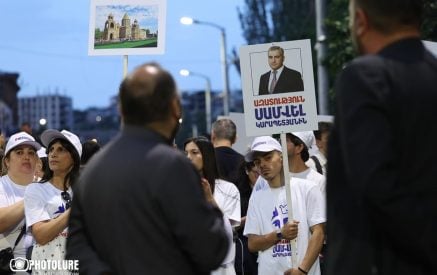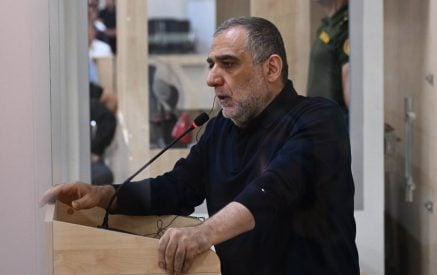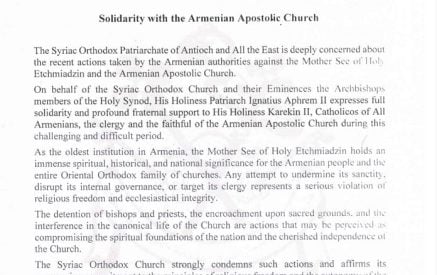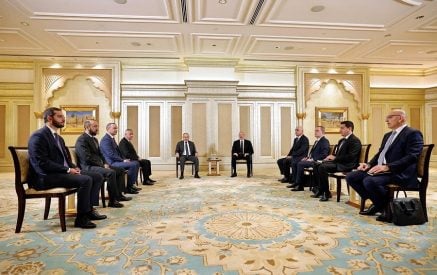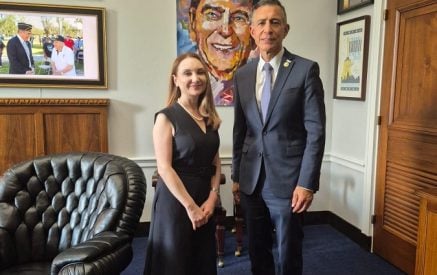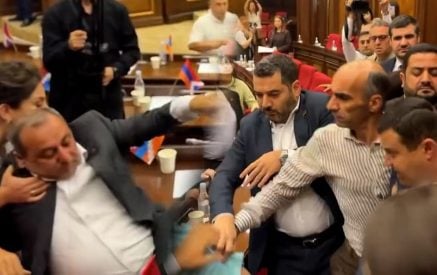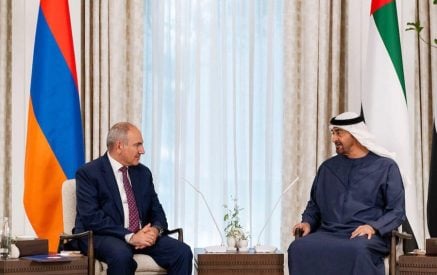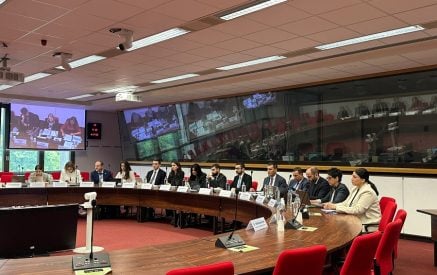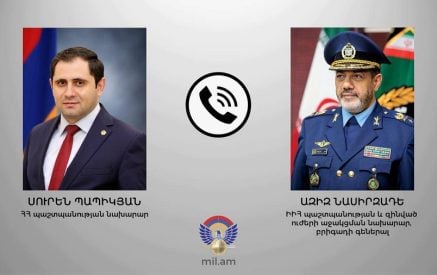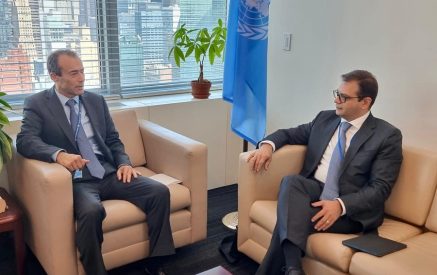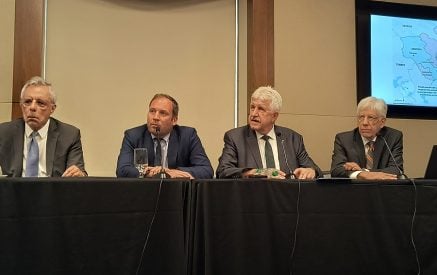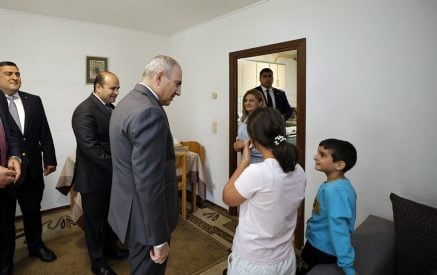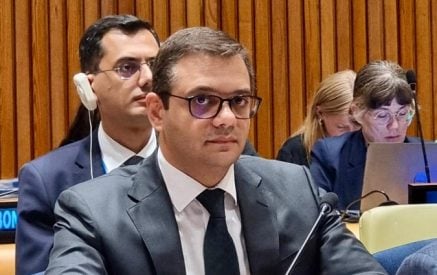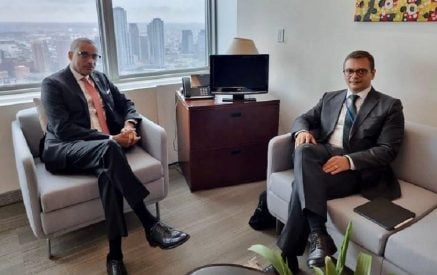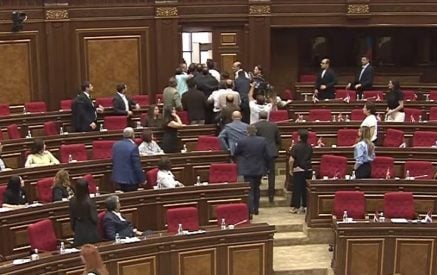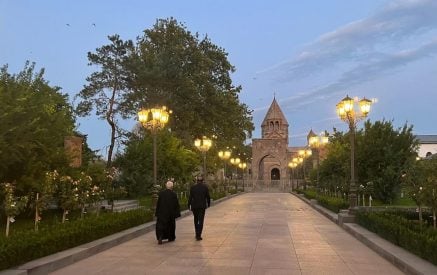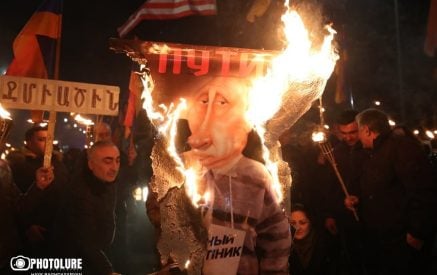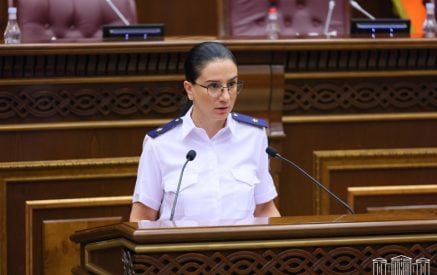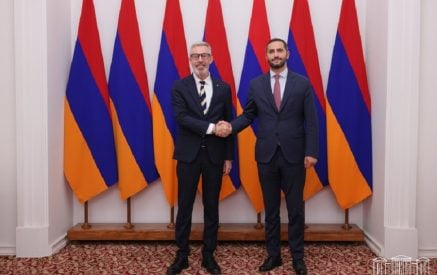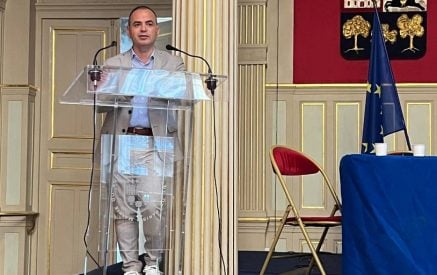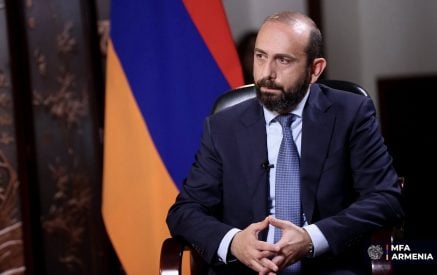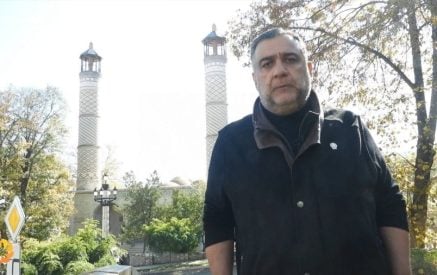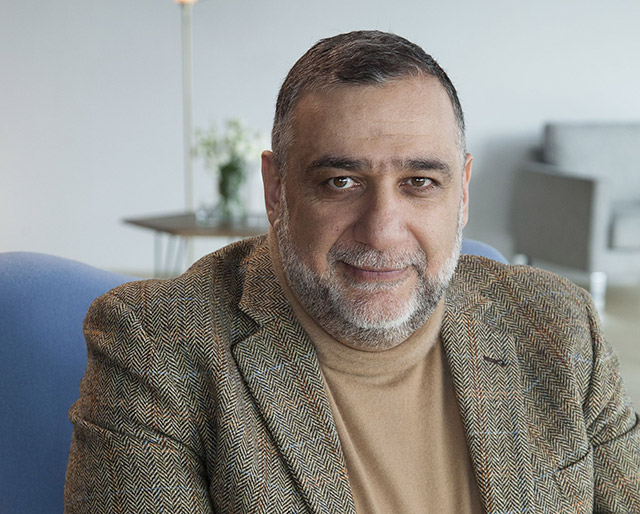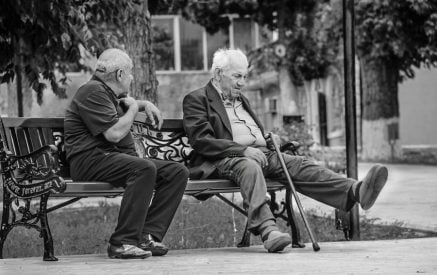Ruben Vardanyan, evolutionary visionary, Co-founder of the Aurora Humanitarian Initiative, UWC Dilijan, FAST, International School of Leadership and Professional Development “Matena” and other projects.
Part 4
Read the beginning here
The new leaders who came to power on the heels of the events of the spring 2018 proposed a new social contract: the government pledged to fight corruption and show more respect for citizens. Indeed, the atmosphere in society began to improve. Citizens felt more freedom and more confidence, having gotten rid of the way of life imposed on them by the previous government.
Read also
However, as I have already mentioned, the new ruling elite considered it their right to monopolize the country, without involving either society or the Diaspora to participate in the reform process. The government was formed not based on meritocracy, involving the best executives and the most qualified and experienced professionals, but based on the loyalty to the new leaders and their ideas. The old power mechanism was neither destroyed nor transformed, and without the grease of corruption, which previously ensured its fairly well-oiled operation, it began to malfunction, slowing down all processes. The country remained closed just as before. Ensuring security and stability, the key points of the previous social contract, was out of the question, too.
We need a new agreement between the government and the society, based on common ideas about the future of the nation, which will allow more actors to affect political processes.
Apparently, we need a new agreement between the government and the society, based on common ideas about the future of the nation, which will allow more actors to directly or indirectly affect political processes, thereby boosting the inclusiveness of the political and economic institutions of the state. It is inclusive institutions that incentivize development, reward talent and creative ideas, and, therefore, make sustainable and lasting prosperity more likely for a nation.
In my opinion, a new social contract should be based on sufficient consensus on the following issues:
- After the collapse of the USSR, many Soviet Armenian officers moved to Armenia and Artsakh and contributed to our victory. Unfortunately, we have yet to set up a school for training new generations of military personnel. The reality is that serving in the army was no longer synonymous with honor for young men, much less for girls. Despite the fact that the creation of a professional army is a constant talking point, there is a lack of understanding in society that the willingness to serve our homeland is the staple of the patriotic education of young people. It is with deep regret that I conclude that the unity of the army with the people was never the case.
The creation of a professional army is a constant talking point, but the unity of the army with the people was never the case.
Photo credit: Davit Hakobyan
Armenia is a small, sparsely populated country with limited resources, surrounded by unfriendly neighbors. With this in mind, it is necessary to rebuild our entire way of life: the civilian population must be perfectly prepared for life where military conflict is always a possibility, like in Israel. To do this, it is necessary to establish a constant dialogue between society and the state about the challenges facing the country and to understand that a professional army is not enough to ensure our defense capability—we need the support of citizens, the willingness of young people to repay their debt to their homeland, and we need volunteers and allies—in other words, a well-coordinated mechanism.
To ensure our defense capability, a professional army is not enough—we need the support of citizens, the willingness of young people to repay their debt to their homeland, and we need volunteers and allies.
It is important, however, to understand that security is not limited to high defensive capabilities, which will not allow anyone to even think about military action against a sovereign country and its citizens. We are talking about a safe environment, a broader and more comprehensive concept. Security suggests that citizens are not worried about their children walking the streets and the lives of our sons and daughters at the borders—they are not afraid of unjust treatment and abuse by authorities in all areas of life. The health of the nation is also a national security issue. It is necessary not only to effectively cure the sick, but also to minimize and possibly prevent morbidity by conducting regular free prophylactic medical checkups of the population. I would like to note that in addition to the existing set of platforms for the implementation of projects, which will be discussed below, my partners and I have created another one: healthcare. I hope that the implementation of various initiatives on this platform, such as the creation of a center for the prevention and treatment of diabetes mellitus or an anti-aging wellness center in Dilijan, and many others will provide residents with access to quality healthcare services and will contribute to the transformation of Armenia into one of the key global centers of medical tourism.
The focus is on strict adherence to quality standards for imported and local foodstuffs and medicines, the availability of clean drinking water, and a high level of sanitation. The state of the housing stock, the preservation of the biosphere, the unacceptability of barbaric methods of exploiting natural resources, a healthy urban environment, safe transport and construction infrastructure, the absence of hazardous production facilities—all these are necessary conditions for ensuring the health of the nation along with the physical safety of citizens. On the Climate Uturn platform, a system of food standards is being developed as part of the food safety program. At the same time, a program is being designed for the identification, seizure, and disposal of counterfeit and expired medications sold in pharmacies and posing a truly serious threat to human health.
More than 30% of the population of Armenia is thinking about leaving the country today, and two-thirds of them have already decided to emigrate.
Security is directly linked to prosperity: the stronger the economy, the more opportunities a country has to attract significant investments not only to protect its borders but also to ensure security in a broad sense, and a safe and development-oriented environment, in turn, contributes to the growth of prosperity.
Another important aspect of security is the decline in population due to migration. The current state of affairs jeopardizes the security of the country and the nation as a whole, pushing people into emigration, forcing them to seek a safer haven. Opinion polls show that today, over 30% of Armenia’s population are considering leaving the country, that is, almost a third of its residents, and two-thirds of them have already decided to emigrate.
The current state of affairs forces people to seek a safer haven.
Photo credit: Photolure News Agency ©
Migration from rural areas to large cities, mainly to the capital, also poses a security threat, imbalancing the development. A situation where a third of the country’s population lives in the capital and the number of residents in the second-largest city is ten times less illustrates the inequities. Moreover, another third of the population lives in rural areas. Equal development of the regions is necessary, which will gradually smooth out the differences. For this purpose, my partners and I have identified several support zones in which our anchor projects are concentrated:
- Tatev – Goris
- Dilijan – Sevan
- Gyumri – Ani
- Yerevan – Echmiadzin
The choice was based on an in-depth analysis of those hidden assets that we consider necessary to develop. Each priority region boasts its own specifics: for Tatev – Goris, it is cultural heritage and tourism; for Dilijan – Sevan—education, healthcare, and international relations; for Yerevan – Echmiadzin—culture, urbanism, tourism, high tech, and the banking sector; for Gyumri – Ani—tourism, culture, high tech, crafts, etc.
It is important to ensure the inflow of those categories of migrants into the country that boost the concentration of capital and talent where their flows are directed.
Immigration and demographic aspects of security are equally important. Another indicator of the instability of our situation besides population decline is the population’s median age. According to the CIA World Factbook, the population of Armenia is 3,011,609 people. The median age in Armenia is 36.6 years, while in Azerbaijan and Turkey, the figures are lower (32.6–32.2 years, respectively)[i]. A dwindling and aging population limits the country’s development opportunities, as the labor market hits a demographic limit. At the same time, government spending on welfare and pension payments is growing. And this makes the country less attractive for international development institutions, institutional investors, and developed donor states.
The influx of the best specialists in high tech into the country will enabled it to achieve a developmental breakthrough.
Photo credit: Foundation for Armenian Science and Technology (FAST) ©
As for the immigration aspect, the motives that drive voluntary migrants, which are the majority of the global flow, can be different, including the desire to provide for themselves and their families a higher standard of living and stable living conditions, the penchant for creativity, the desire of affluent individuals to optimize taxation or find a country with a more attractive investment climate. It is important to ensure the influx of migrants who are qualified professionals. An interesting example is Switzerland, which, for decades, was a global financial hub, but in recent years, it has attracted the best specialists in high tech from different countries around the world, and the results have skyrocketed. We often learn from the news about a famous businessperson or cultural celebrity, who decided to relocate. Quite often, elderly people leave their homeland, who, for whatever reason, prefer to spend the rest of their lives in another country. Numerically, this category is insignificant, but such dynamics lead to the concentration of capital to these destinations, and this has an undoubtedly positive effect on the economy of the respective country or metropolitan area. Below, I will get back to immigration.
[i] CIA World Factbook data as of September 9, 2021. URL: https://www.cia.gov/the-world-factbook/ (date accessed: September 15, 2021).
To be continued


